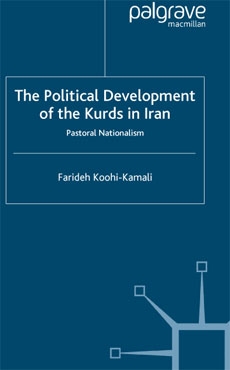| Éditeur : Palgrave Macmillan | Date & Lieu : 2003, New York |
| Préface : | Pages : 266 |
| Traduction : | ISBN : 0-333-73169-7 |
| Langue : Anglais | Format : 225x208 mm |
| Code FIKP : 3556 | Thème : Politique |
|
Présentation
|
Table des Matières | Introduction | Identité | ||
 The Political Development of the Kurds in Iran In the modern age, nationalism can be seen as a universal phenomenon, a component of the development of our modern history, part of a process which originated in Western Europe and the Americas, and one which was copied by other groups in later stages. The models of nationalism, when transferred to a variety of societies, foster different forms of nationalism. Perhaps the most significant realization for the communities pursuing nationalism is that to model oneself on the West means pursuing the idea of the nation-state. Human history is passing through a phase, a key characteristic of which is that individuals feel the need to belong to a nation-state in order to obtain security and to ensure that their communities receive security, legitimacy and recognition. Those who feel the need of such recognition have before them examples of those who have achieved such recognition. | |||||
| Preface | ||||